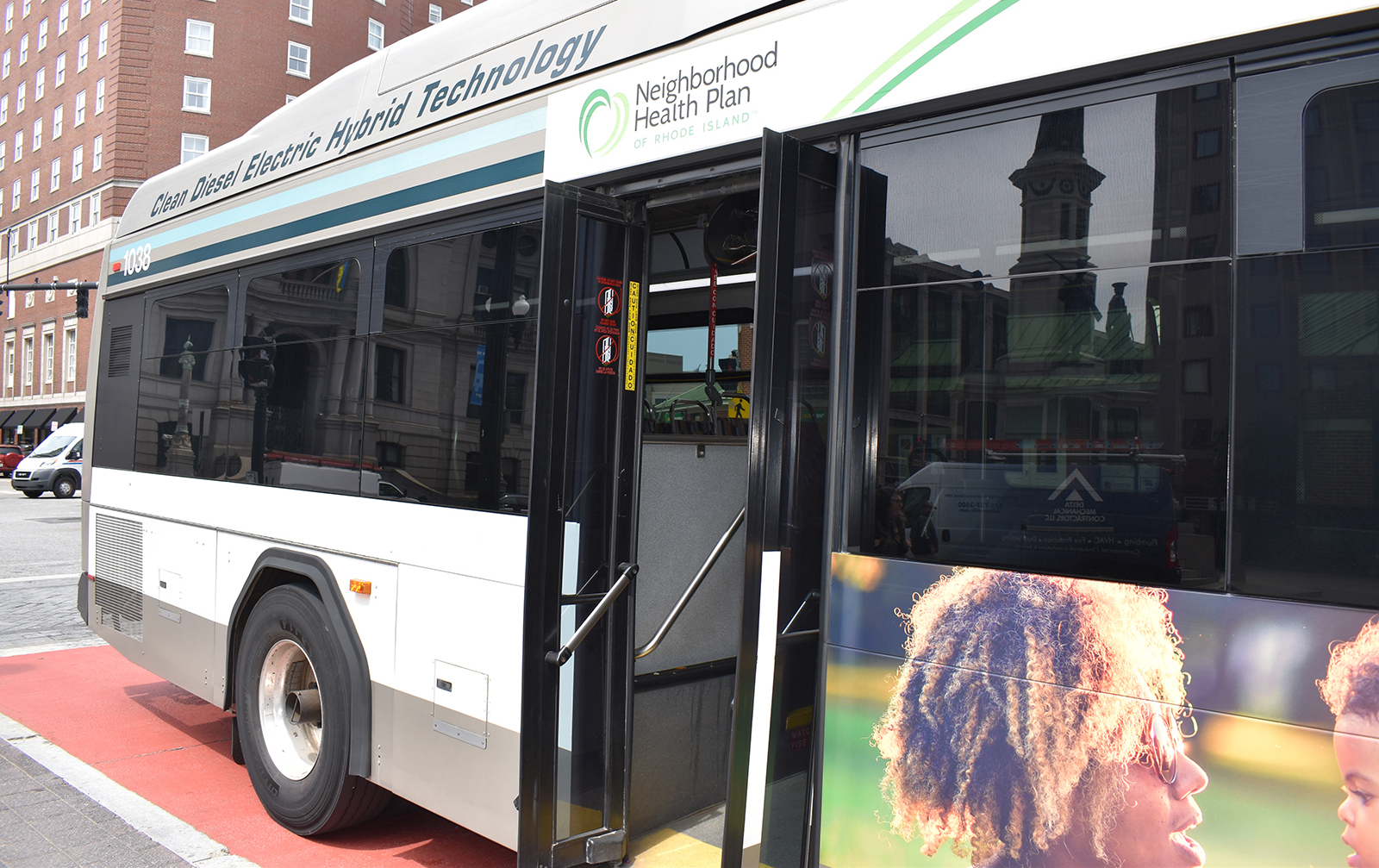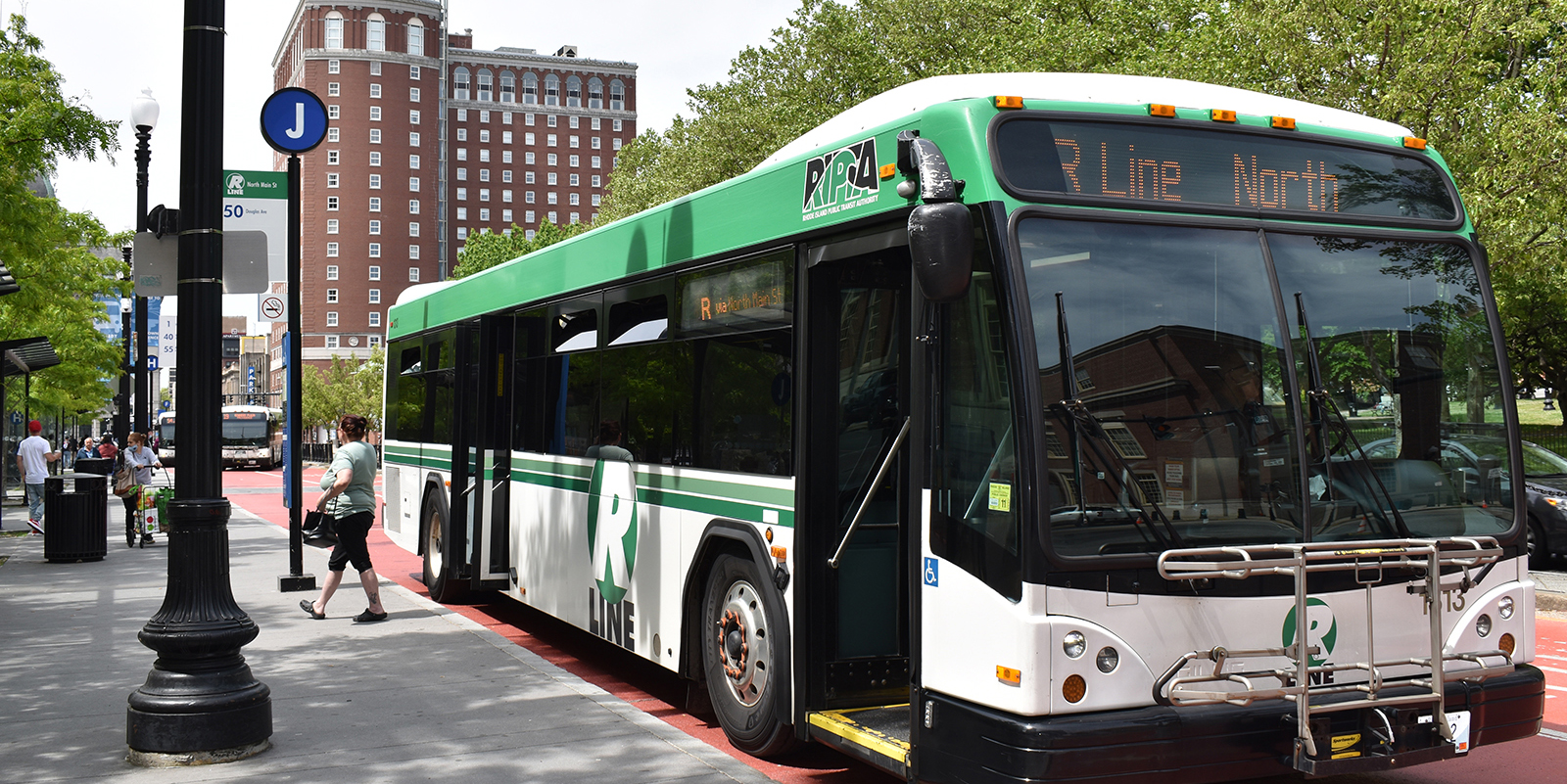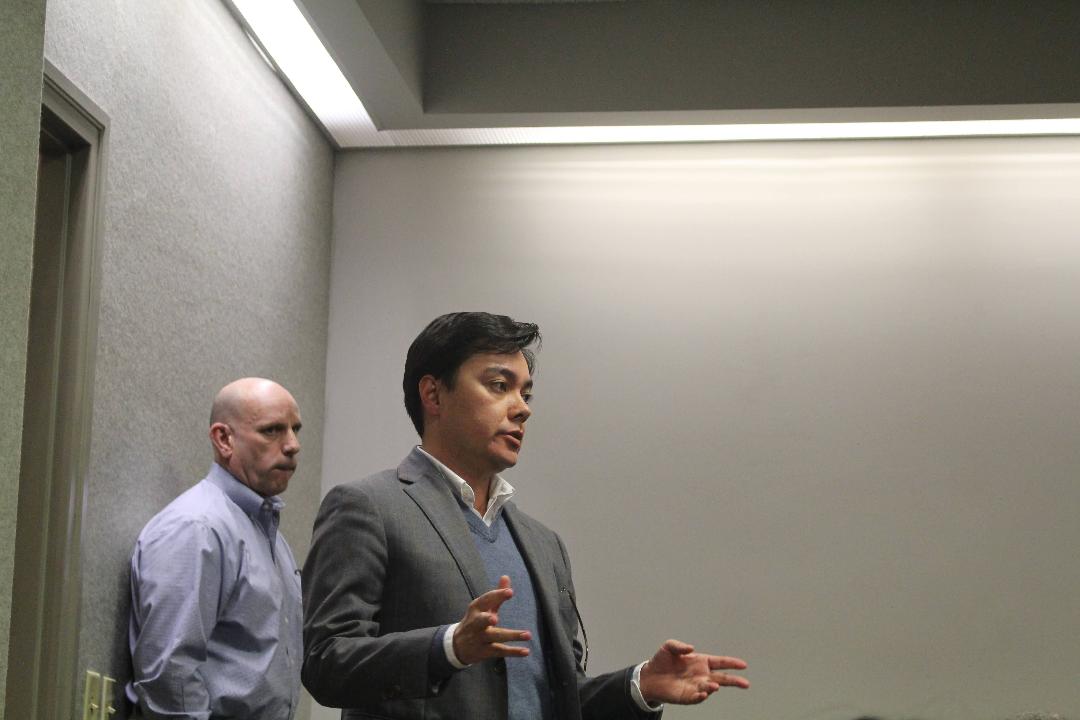Free Bus Fare Can Be a Lifeline for Rhode Islanders Who Qualify
May 25, 2023
WEST WARWICK, R.I. — Jennifer Ray wanted to sign up for a free bus pass to get out of town for a little while.
She had been having a tough few weeks when she came to the West Warwick Senior and Community Center’s resource fair last month, looking for a way to claim the free pass she is eligible for as a low-income Rhode Island resident with disabilities.
The night before the fair, Ray, 34, had been asked to leave a gazebo in which she had been living. A few days before that, she had been kicked out of a friend’s house, where she had landed after breaking up with her boyfriend.
She’s from Massachusetts originally, and she doesn’t have any family to help her out nearby. Her sister recently died from a fentanyl overdose, she said.
Ray said she hoped the pass would help her search for housing that is a little more permanent. “I want someplace to call my own,” she said.
Free bus service can be a lifeline for Rhode Islanders like Ray — any senior citizen or person with a disability who makes an income less than 200% of the poverty line qualifies — but the application process stops some from taking advantage of the program.
The Rhode Island Public Transit Authority workers at the recent resource fair outlined what Ray would need to send or bring to the RIPTA office to qualify: an ID, a disability award letter, a photo (if the application is mailed in), and $10.
Of all the requirements, the $10 felt like the biggest hurdle, Ray said. She knew she would get paid the following week, but the phone bill would also be due, and then she’d have to buy food. Hopefully, there would be $10 left.
“I’m so stressed out,” she said, before hurrying out of the fair carrying most of her worldly possessions and an incomplete application.
Ray was one of several people at the fair who could not apply for a pass, although they said they qualified for one.
One woman approached the table with an envelope holding copies of her documents. But the copied ID she presented was old and couldn’t be used, so one of the workers asked if she had anything more recent.
“I don’t have an ID,” the woman said over and over again before walking away.
‘Light bulb’ moment
The current free fare program could be changed to better accommodate participants, according to RIPTA staff.
At the April RIPTA board meeting, customer service operation administrator Nathan Hannon said overseeing the low-income pilot program helped him understand how difficult obtaining and keeping a pass can be for the passengers that need it most.
Unlike the existing program, individuals who received passes through the pilot that began last November only needed to meet income requirements, and not age or disability status, to qualify for a free pass. (The federal government also requires that RIPTA offer any senior or person with disabilities half-price fares during off-peak hours.)
At an outreach visit to the Cranston Street Armory to get individuals signed on, Hannon realized many of the people trying to get a pass through the pilot already qualified under existing programs for seniors and people with disabilities.
The overlap was happening, he said, because they had passes that were stolen or lost but couldn’t afford the $20 fee to replace them. But the new pilot program was free to sign up for.
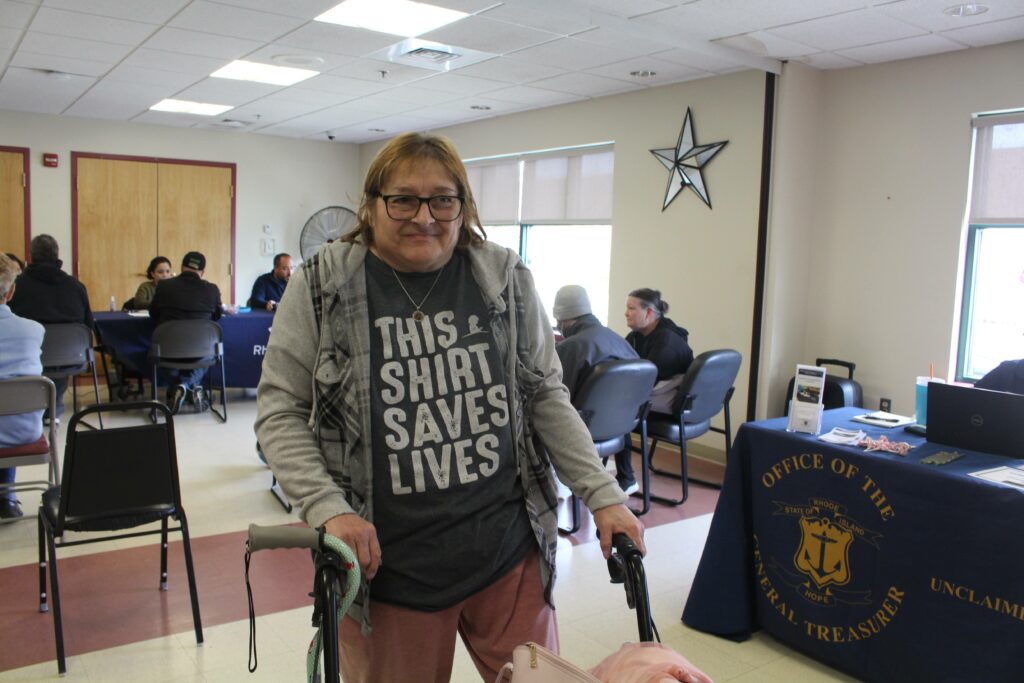
At the shelter, he also saw how individuals lacked secure places to keep their belongings, which often led to the loss of both their passes and the documents needed to apply for and renew them.
“It was an eye-opener,” he said of the experience. “We would see people come back to us and apply for the senior and disabled program because they were constantly losing” their documents, and until he saw the lack of secure storage, he hadn’t understood why. He called it a “light bulb” moment.
(The pilot program also helped avoid issues with missing documents because partner organizations prequalified the participants, so they were providing RIPTA with a voucher showing they were eligible at the time of applying.)
Waiving document requirements for individuals renewing or replacing a card could help keep people in the program, RIPTA spokesperson Cristy Raposo Perry told ecoRI News.
“For example, if you lose your Photo ID Bus Pass today, you will have to present a photo ID to request a replacement pass. RIPTA could instead match the photo in the database to the person requesting a replacement, instead of requiring a photo ID,” Raposo Perry wrote in an email to ecoRI News.
Additionally, eliminating the fees to replace lost and stolen cards may lessen barriers to reapplying, according to Raposo Perry.
Neither of these changes has been implemented and would have to be voted on by the agency’s governing board.
Currently, initial fees for new applicants are not waived and cover both the cost of the card itself as well as administrative fees associated with the program, according to Raposo Perry.
Although document requirements are also not waived for new cards, Raposo Perry said that “in extenuating circumstances” RIPTA allows riders to apply for IDs and issues them without the necessary documents as long as the required materials are provided to the agency within 30 days.
‘A blessing’
For those who can meet the requirements and are able sign up for free passes, it can be both lifesaving and -enhancing.
Several people completed the process at the April resource fair and reflected on the way they hoped it would improve their day-to-day lives.
Kathy Sawey, 67, said she’ll use her pass a lot once her “garbage” car finally gives out. Sawey has built a strong community in Rhode Island since moving from New Jersey a few years ago that she still hopes to access when she can no longer drive.
“I can only make my social security go so far,” she said, so the free bus fare will also help keep her in budget.
Another senior, Chris Cece, wanted to sign up for a pass to lessen the burden on his neighbor, who frequently drives him to appointments and also drove him to the resource fair from North Kingstown.
Cece, 67, currently uses a wheelchair and will likely need one for the next year because of upcoming surgeries. He’s hoping to use flex options as well as paratransit RIDES to get around on top of fixed-route use.
“Coming here was a blessing,” he said.
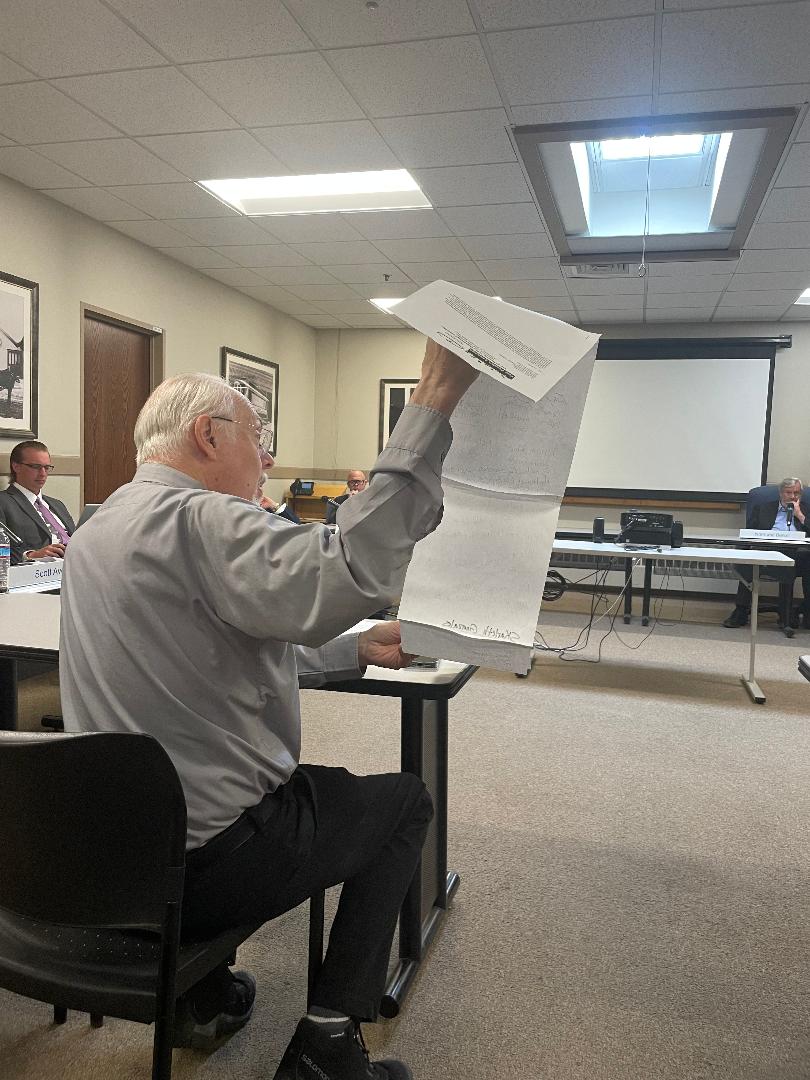
A single mother who qualifies for a pass because of a disability and her income (who asked not to be named to preserve her privacy) said she frequently uses the bus to get around, to go shopping or the mall in Providence to hang out. She loves the R-Line and there’s a bus stop that drops her off right by her house, she said.
With the pass, “I can go anywhere in Rhode Island,” for free, she said. Calling herself the “lowest-income mother on the block,” she said saving fare money would also help her financially. A monthly pass is $70, which is a lot of money for many Rhode Island families.
At past RIPTA board meetings, participants in the low-income pilot program also testified about the impact of the free passes. Some people talked about how it helped them get to medical appointments, find employment, and stay connected to family.
The RIPTA board voted in April to extend the pilot for an additional six months, but there are some that would like to see a broader group of riders get free fares, regardless of income.
A bill was introduced, but ultimately held for further study, that would have eliminated RIPTA fares for everyone. The Central Falls free fare program was recently extended (with no restraints on income) and the R-Line free fare pilot will run until the end of August.
Others have advocated for free fares for a larger range of people who are low income.
During RIPTA’s May board meeting, pastor Duane Clinker from Providence’s Mathewson Street United Methodist Church, one of RIPTA’s community partners in the pilot program, called for more free passes for Rhode Island’s neediest.
Clinker asked that the board increase the number of passes it was giving out through the pilot, or issue a new batch. To demonstrate the need, he held up a list several pages long, taped together and filled with signatures.
“These are names of people we can verify are in need now,” Clinker said. “This is a serious deal.”

